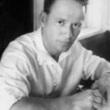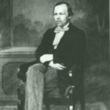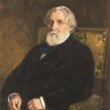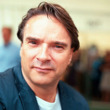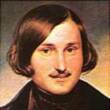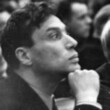In the first circle : a novel
(Book)
F SOLZH
1 available
Copies
| Location | Call Number | Status |
|---|---|---|
| Shirlington - Adult Fiction | F SOLZH | Available |
Description
The thrilling Cold War masterwork by the Nobel Prize-winning author of The Gulag Archipelago, published in full for the first time.
"Solzhenitsyn's best novel. . . . A great and important book, whose qualities are finally fully available to English-speaking readers.” —Washington Post
Moscow, Christmas Eve, 1949.The Soviet secret police intercept a call made to the American embassy by a Russian diplomat who promises to deliver secrets about the nascent Soviet Atomic Bomb program. On that same day, a brilliant mathematician is locked away inside a Moscow prison that houses the country's brightest minds. He and his fellow prisoners are charged with using their abilities to sleuth out the caller's identity, and they must choose whether to aid Joseph Stalin's repressive state—or refuse and accept transfer to the Siberian Gulag camps . . . and almost certain death.
First written between 1955 and 1958, In the First Circle is Solzhenitsyn's fiction masterpiece. In order to pass through Soviet censors, many essential scenes—including nine full chapters—were cut or altered before it was published in a hastily translated English edition in 1968. Now with the help of the author's most trusted translator, Harry T. Willetts, here for the first time is the complete, definitive English edition of Solzhenitsyn's powerful and magnificent classic.
More Details
Similar Titles From NoveList
Similar Authors From NoveList
Published Reviews
Booklist Review
*Starred Review* Even the title was truncated when The First Circle, an expurgated English translation of Solzhenitsyn's Soviet-censored masterpiece In the First Circle, was published to acclaim in the West in 1968. Written in the mid-1950s just after Solzhenitsyn's eight years in the gulag, his nearly fatal bout with cancer, and his sentence to perpetual exile in Kazakhstan, this novel of tyranny and transcendence, set in a secret Soviet prison research facility, appears for the first time in full and in sterling English, following the Nobel laureate's death at age 89 in 2008. In this many-voiced, flashback-rich, philosophical, suspenseful, ironic, and wrenching tale, Solzhenitsyn interleaves the stories of a grand matrix of compelling characters (women are accorded particular compassion) trapped in a maze of toxic lies, torturous absurdities, and stark brutality. It all begins with diplomat Innokenty Volodin's anonymous phone call to the American embassy. Imprisoned scientists, most notably linguist Lev Rubin and mathematician (and stoic) Gleb Nerzhin, are put to work identifying his recorded voice, the catalyst for a scorching inquiry into free speech, which is but one strand in Solzhenitsyn's metaphysical interpretation of incarceration. As the resilient and talented prisoners draw strength from books and conversation, Nerzhin decries humankind's astounding capacity to forget both crimes and punishments. Solzhenitsyn has an antidote: this indelible novel of towering artistry, caustic wit, moral clarity, and spiritual fire.--Seaman, Donna Copyright 2009 Booklist
Publisher's Weekly Review
This first uncensored translation of what many consider Solzhenitsyn's masterpiece shows the Nobel laureate treading deeply into the logic of Soviet Russia's gulag, if not deeply enough into the minds of his characters. A quest to discover the identity of a rogue Russian diplomat serves as Solzhenitsyn's springboard for a tour of Russia's immense gulag system, slipping from prisoner to jailer to anguished wife (and even detouring through a weary Stalin) to briefly examine the lives of more than 60 significant characters. Each short chapter contributes to a vast mosaic of philosophies and moral dilemmas that, taken together, form a panorama of a Russia gripped by Stalinist terror. Unfortunately, none of the characters steps out from the shadow of the political to become a full-fledged individual; the result is an oddly skewed work, a highly journalistic novel that hits the political and material realities of post-WWII Russia, but that subsumes humanity beneath its ideas. It's more valuable as testimony than as literature, thanks largely to Solzhenitsyn's insight into one of the great abominations of the 20th century. (Oct.) (c) Copyright PWxyz, LLC. All rights reserved
Booklist Reviews
*Starred Review* Even the title was truncated when The First Circle, an expurgated English translation of Solzhenitsyn's Soviet-censored masterpiece In the First Circle, was published to acclaim in the West in 1968. Written in the mid-1950s just after Solzhenitsyn's eight years in the gulag, his nearly fatal bout with cancer, and his sentence to "perpetual" exile in Kazakhstan, this novel of tyranny and transcendence, set in a secret Soviet prison research facility, appears for the first time in full and in sterling English, following the Nobel laureate's death at age 89 in 2008. In this many-voiced, flashback-rich, philosophical, suspenseful, ironic, and wrenching tale, Solzhenitsyn interleaves the stories of a grand matrix of compelling characters (women are accorded particular compassion) trapped in a maze of toxic lies, torturous absurdities, and stark brutality. It all begins with diplomat Innokenty Volodin's anonymous phone call to the American embassy. Imprisoned scientists, most notably linguist Lev Rubin and mathematician (and stoic) Gleb Nerzhin, are put to work identifying his recorded voice, the catalyst for a scorching inquiry into free speech, which is but one strand in Solzhenitsyn's metaphysical interpretation of incarceration. As the resilient and talented prisoners draw strength from books and conversation, Nerzhin decries humankind's "astounding capacity to forget" both crimes and punishments. Solzhenitsyn has an antidote: this indelible novel of towering artistry, caustic wit, moral clarity, and spiritual fire. Copyright 2009 Booklist Reviews.
Publishers Weekly Reviews
This first uncensored translation of what many consider Solzhenitsyn's masterpiece shows the Nobel laureate treading deeply into the logic of Soviet Russia's gulag, if not deeply enough into the minds of his characters. A quest to discover the identity of a rogue Russian diplomat serves as Solzhenitsyn's springboard for a tour of Russia's immense gulag system, slipping from prisoner to jailer to anguished wife (and even detouring through a weary Stalin) to briefly examine the lives of more than 60 significant characters. Each short chapter contributes to a vast mosaic of philosophies and moral dilemmas that, taken together, form a panorama of a Russia gripped by Stalinist terror. Unfortunately, none of the characters steps out from the shadow of the political to become a full-fledged individual; the result is an oddly skewed work, a highly journalistic novel that hits the political and material realities of post-WWII Russia, but that subsumes humanity beneath its ideas. It's more valuable as testimony than as literature, thanks largely to Solzhenitsyn's insight into one of the great abominations of the 20th century. (Oct.)
[Page 35]. Copyright 2009 Reed Business Information.Reviews from GoodReads
Citations
Solzhenit︠s︡yn, A. I., & Willetts, H. T. (2009). In the first circle: a novel (First edition.). Harper Perennial Modern Classics.
Chicago / Turabian - Author Date Citation, 17th Edition (style guide)Solzhenit︠s︡yn, Aleksandr Isaevich, 1918-2008 and H. T. Willetts. 2009. In the First Circle: A Novel. New York: Harper Perennial Modern Classics.
Chicago / Turabian - Humanities (Notes and Bibliography) Citation, 17th Edition (style guide)Solzhenit︠s︡yn, Aleksandr Isaevich, 1918-2008 and H. T. Willetts. In the First Circle: A Novel New York: Harper Perennial Modern Classics, 2009.
Harvard Citation (style guide)Solzhenit︠s︡yn, A. I. and Willetts, H. T. (2009). In the first circle: a novel. First edn. New York: Harper Perennial Modern Classics.
MLA Citation, 9th Edition (style guide)Solzhenit︠s︡yn, Aleksandr Isaevich, and H. T Willetts. In the First Circle: A Novel First edition., Harper Perennial Modern Classics, 2009.


























